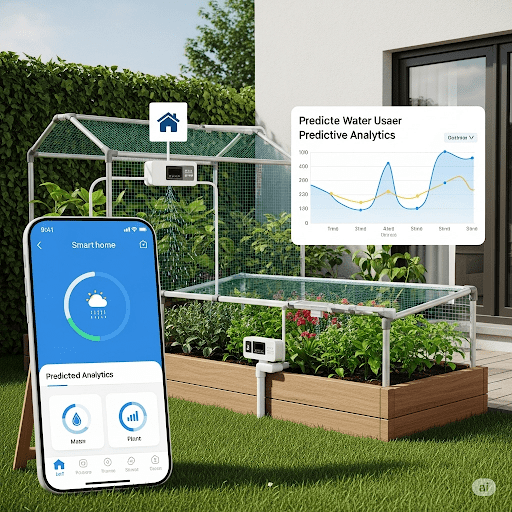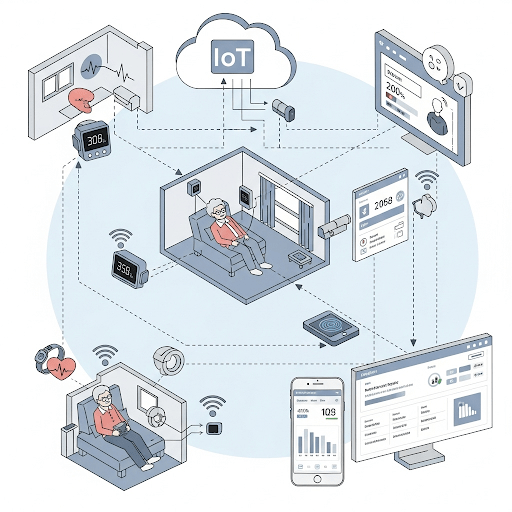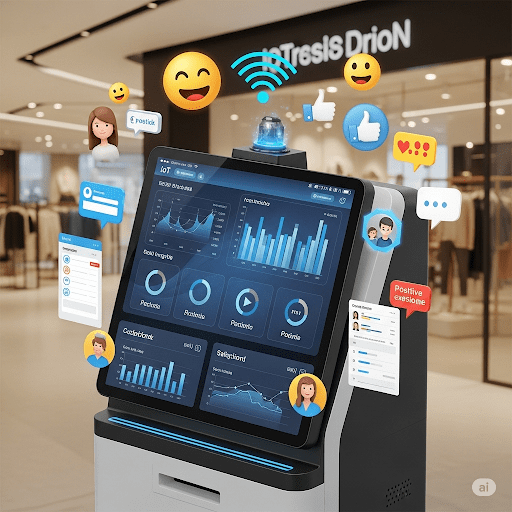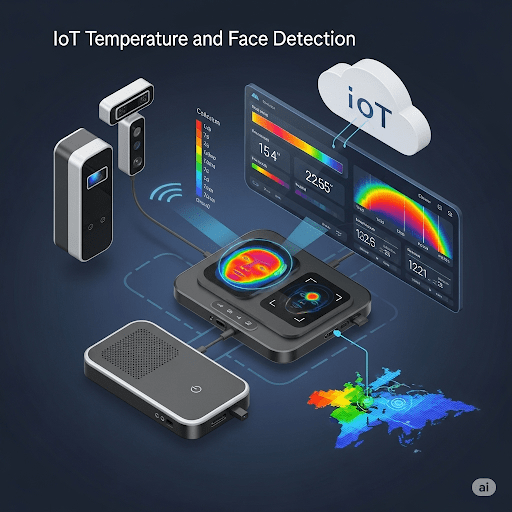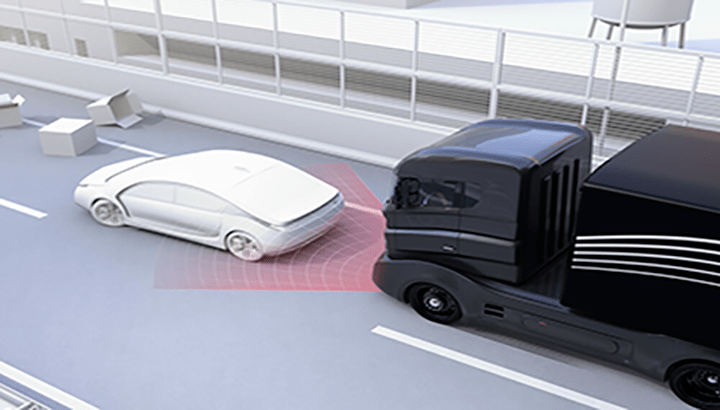Project Categories
Browse by type
-
IoT Projects
Arduino, ESP32, Sensors
-
Embedded Systems
Microcontrollers, Circuits
-
Web Applications
PHP, Laravel, React
-
Mobile Applications
Android, iOS, Flutter
-
AI & Machine Learning
Neural Networks, Deep Learning
Quick Links
Visit STS Shop
All Components In Stock
Arduino, Raspberry Pi, ESP32, Sensors, Motors & More!
Browse ComponentsSecurity and Surveillance System
Need Components for This Project?
SoftTech Supply (STS) stocks all electronic components you need: Arduino boards, Raspberry Pi, ESP32, sensors, motors, displays, breadboards, and more.
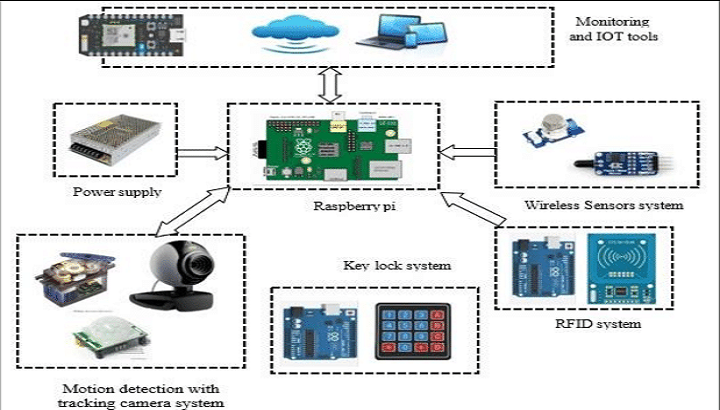
Complementing the video surveillance component, the Security and Surveillance System incorporates motion sensors strategically deployed throughout the facility to detect any unauthorized entry or suspicious activity promptly. These sensors serve as the frontline defense, triggering immediate alerts to security personnel, thereby enabling swift and decisive responses to security incidents. Furthermore, the system integrates state-of-the-art access control mechanisms, such as electronic keycards or biometric scanners, to regulate access to restricted areas within the facility. By leveraging IoT-enabled access control systems, the Security and Surveillance System ensures that only authorized personnel can access sensitive infrastructure components, mitigating the risk of insider threats and unauthorized access.
One of the defining features of the Security and Surveillance System is its remote monitoring and management capabilities, facilitated by a centralized monitoring platform. This platform empowers security personnel to access live camera feeds, receive real-time alerts, and manage security incidents from any location with internet connectivity. Such flexibility not only enhances operational efficiency but also enables rapid response to security threats, irrespective of geographical constraints. Moreover, the system incorporates tamper detection mechanisms, utilizing IoT sensors to detect and alert security personnel of any attempts to tamper with surveillance equipment or critical infrastructure components. This proactive approach to security minimizes the risk of sabotage and ensures the integrity of the surveillance system.
Finally, the Security and Surveillance System is designed to seamlessly integrate with local law enforcement or emergency response agencies, facilitating coordinated responses to security incidents or emergencies. By establishing robust communication channels between the security system and external stakeholders, the system enhances overall safety and security measures, safeguarding telecommunications facilities against a wide range of potential threats. In summary, the Security and Surveillance System represents a paradigm shift in the protection of critical infrastructure, leveraging IoT technologies to deliver proactive, real-time security solutions tailored specifically for the telecommunications industry.
Key Components and Features:
- Video Surveillance: Install high-definition video cameras equipped with IoT connectivity to provide real-time video monitoring of key areas within and around telecommunications facilities.
- Motion Detection: Integrate motion sensors with the surveillance system to detect and alert security personnel of any suspicious activity or unauthorized entry.
- Access Control: Implement IoT-enabled access control systems, such as electronic keycards or biometric scanners, to regulate access to restricted areas and track employee movements.
- Remote Monitoring and Alerting: Develop a centralized monitoring platform that enables security personnel to remotely access live camera feeds, receive real-time alerts for security breaches, and take appropriate action as needed.
- Tamper Detection: Utilize IoT sensors to detect tampering or sabotage attempts on surveillance equipment or other critical infrastructure components, triggering immediate alerts and responses.
- Integration with Emergency Services: Integrate the security and surveillance system with local law enforcement or emergency response agencies to facilitate rapid response to security incidents or emergencies.
Problem Statement: Telecommunications facilities, including data centers, equipment sites, and network infrastructure, are critical assets that require robust security measures to protect against unauthorized access, vandalism, and security threats. Traditional security systems often lack the real-time monitoring, remote accessibility, and automated alerting capabilities necessary to effectively safeguard these facilities. As a result, there is a pressing need for an advanced security and surveillance solution tailored specifically for the telecommunications industry.
Ready to Build This Project?
STS Full Project Support
What We Provide:
- • All electronic components in stock
- • Step-by-step implementation guidance
- • Circuit design and wiring diagrams
- • Source code and programming support
- • Debugging and troubleshooting help
Why Choose STS:
- • Quality components at competitive prices
- • Fast delivery in Kigali and across Rwanda
- • Expert technical consultation
- • Complete documentation provided
- • Post-project support available
More Project Ideas from STS
Water usage prediction using automated home garden watering system
The automatic systems are more chosen than manual system. Smart watering system in garden is the combination of several hardware equipment and software applications that trigger the water usage with respect to the given threshold. This IoT system maintains proper usage of water used in home garde...
IoT-Based system for monitoring health conditions of eldery people in Rwanda
The rapid increase in number of the old adults in developed countries has raised concerns about their well-being and increased needs for healthcare services. Elderly people faces different oldage related diseases such as Cancer, Alzheimer, cardiovascular, blood pressure and sugar level problems w...
IoT Based Customer Satisfaction Machine
As high satisfaction leads to greater customer retention, higher lifetime value, and a stronger brand reputation. Do companies or institutions have a good way to know if their customers are satisfied or not. Poor customer service can affect the present and future sales standards, it can also nega...
TEMPERATURE AND FACE DETECTION SYSTEM
The measured amount of heat in a place or in the body is called temperature whereas face is the front of the head, where the eyes, nose and mouth are. By using face detection, you can recognize someone’s identification. Temperature can be used as the sign of change in human bod...
Vehicle collision avoidance IOT system
Driver-assistance systems called collision avoidance systems, sometimes known as crash avoidance systems, use sensors and algorithms to identify possible hazards or obstructions and issue alerts to the driver to help prevent a collision. A collision avoidance system is a type of safety device used t...
About This Project at SoftTech Supply
This Security and Surveillance System project can be implemented using components available at SoftTech Supply (STS) in Kigali, Rwanda. Whether you need Arduino boards, Raspberry Pi, ESP32, ESP8266, sensors, microcontrollers, or any other electronic components, we have everything in stock. STS provides complete project support including component selection, circuit design, programming assistance, and troubleshooting. Our team can help you implement this project from start to finish. Visit our electronics shop or contact us for personalized consultation. We serve students, hobbyists, and professionals across Rwanda with quality components and expert technical support.
